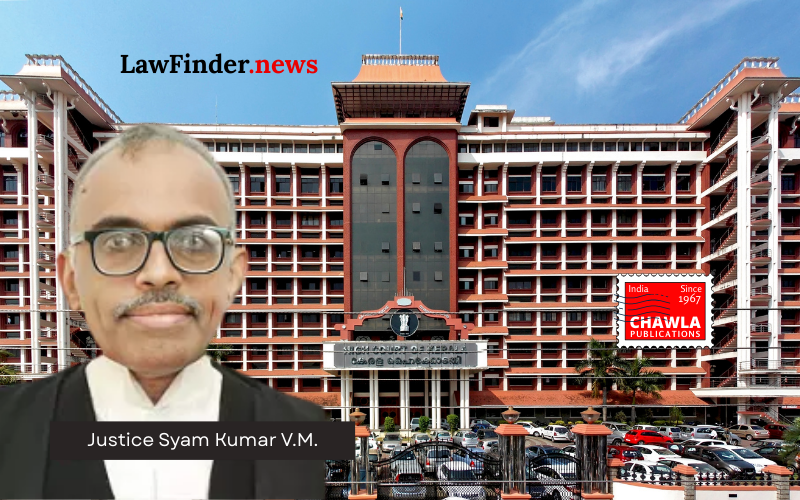Court emphasizes careful exercise of inherent powers under Section 482 Cr.P.C., dismisses plea for quashing proceedings in a dowry harassment case.
In a significant ruling, the Kerala High Court has declined to quash proceedings against Adwaid V., accused of cruelty under Section 498A of the Indian Penal Code, despite an eight-year delay in filing the complaint. The judgment, delivered by Justice Syam Kumar V.M., underscores the necessity of exercising inherent powers under Section 482 of the Code of Criminal Procedure with great caution, particularly in cases of alleged dowry harassment.
The petitioner, Adwaid V., sought to quash the proceedings initiated by his wife, who accused him of physical and mental cruelty demanding dowry. The complaint was filed eight years after their marriage, which the petitioner argued as a basis for its dismissal, claiming it was motivated and an afterthought following his complaint against his wife and her alleged paramour.
The High Court, however, held that the delay in filing the complaint was adequately explained by the wife, who detailed continuous abuse and dowry demands throughout the period. The court found no prima facie evidence to suggest the complaint was frivolous, motivated, or malicious, citing precedents such as Pradeep Kumar Kesarwani v. State of U.P., which laid down steps for evaluating the veracity of quashing prayers.
Justice Syam Kumar V.M. reiterated that inherent powers must be used with circumspection, and quashing is justified only when allegations are clearly unfounded or malicious. The court acknowledged the potential misuse of Section 498A as a tool for harassment, but emphasized the importance of protecting genuine victims of dowry-related cruelty.
This ruling aligns with the Supreme Court's caution in cases like Arnesh Kumar v. State of Bihar, where safeguards against arbitrary arrests under Section 498A were highlighted. The Kerala High Court's decision affirms the need for a meticulous examination of complaints, particularly when allegations involve serious offenses like dowry harassment.
The judgment leaves open all questions, noting that the correctness of the complaint's assertions should be determined through evidence during trial proceedings. By dismissing the petition for quashing the Final Report, the court ensured the continuation of legal proceedings against the petitioner, emphasizing that justice should not be thwarted at the threshold.
Bottom Line:
Exercise of inherent powers under Section 482 Cr.P.C. to quash proceedings must be done with great care, especially in cases involving allegations under Section 498A IPC. Delay in filing a complaint, by itself, is not a sufficient ground for quashing if the complaint explains the delay and contains specific allegations warranting investigation.
Statutory provision(s): Section 482 Cr.P.C., Section 498A IPC, Section 41 Cr.P.C.
Adwaid V. v. State of Kerala, (Kerala) : Law Finder Doc Id # 2780850




